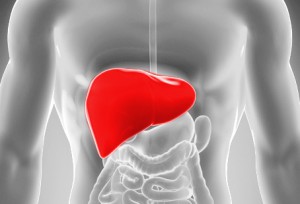 Viral hepatitis commonly addressed as jaundice is caused by various specific viruses affecting the liver, i.e. Hepatitis A virus, hepatitis B virus, hepatitis C virus, hepatitis D virus, hepatitis E virus, etc. These viruses affect a person in 2 ways: either through contaminated food or drinks and excreted through feces (hepatitis A and E virus) or via contaminated blood or body fluids (hepatitis B, C, D).
Viral hepatitis commonly addressed as jaundice is caused by various specific viruses affecting the liver, i.e. Hepatitis A virus, hepatitis B virus, hepatitis C virus, hepatitis D virus, hepatitis E virus, etc. These viruses affect a person in 2 ways: either through contaminated food or drinks and excreted through feces (hepatitis A and E virus) or via contaminated blood or body fluids (hepatitis B, C, D).
If you have been exposed to the above mentioned modes of transmission, it would be advisable to get yourself screened for these viruses.
And what if you have just been diagnosed with Hepatitis C?
You are now aware that hepatitis C is spread only through contact with the infected person’s blood. It does not spread via-
- Hugging
- Kissing
- Cuddling
- Coughing
- Sneezing
- Casual contact
- Sharing clothes and utensils
- Breastfeeding (unless nipples are cracked or bleeding)
- Sharing food and drinks
Hence, everyday contact is not risky. Hence, you need not isolate yourself after you have been diagnosed with Hepatitis C.
So the question is-
What precautions should you take?
- At home, potential source of infection could be something that can cause a nick or cut – eg. Scissors, toothbrushes, nail cutters, razors or jewellery that pierces the skin such as earrings – these should not be shared between friends or family members and the person infected with hepatitis C.
- Carefully dispose off used sanitary napkins, tissues, bandages, tampons or anything that might have your blood on it.
- Do not donate blood, organ or semen.
- Do not continue breast feeding if your nipples are cracked or bleeding, but can continue with breast feeding once your nipples are healed.
- Cover any cuts or blisters to prevent others from coming in contact with your infected blood.
- If you are using injected street drugs, it’s better to get into a treatment program. At least do not share your needles or any other object with anyone else.
What about sex with infected person?
Hepatitis C can spread via sexual contact but it’s very rare. Sexual contact with the same partner poses minimal risk chances. But if you have multiple partners, you must take precaution. Using condoms will not only protect your partner from getting infected with hepatitis C but will also protect them from HIV and hepatitis B.
However, there has been no evidence that hepatitis C spreads via oral sex.
Will I pass the infection to my baby?
There are possibilities that a pregnant woman can spread the virus to her baby, but the risk is low. However, the virus is spread at birth and there’s no way to control or reduce the risk.
Breast feeding is absolutely safe unless the nipples are cracked or bleeding. In such cases, stop breast feeding till the lesion heals completely.
Encourage others to screen for hepatitis C
Even though the chances of passing on infection are low, still tell anyone at risk to get it tested. Your spouses, family members or sexual partners who are at potential risk must know and get themselves screened.
Education and counseling plays an important role.
Also, prevention is always better than cure as there are no vaccines for hepatitis C available as yet. But get yourself immunized with hepatitis A and hepatitis B vaccines to prevent co-infection and to protect the liver.
Regular monitoring is necessary.
Homeopathic treatment has been proven effective for many viral infections. Treatment of Hepatitis C is an area that Dr Rajesh Shah has been working on, since the last decade.
Homeopathic treatment works in the following way:
- Treating the after effects of organ changes due to Hep C virus.
- Decreasing the viral count and viral activity by stimulating our innate immune system to defend the body.
Based on his research based medicines, results at Lifeforce have shown great promise. To know more, leave us your contact details below





brand lipitor 80mg atorvastatin 40mg pills lipitor price
buy finasteride 1mg pill finpecia usa buy forcan without prescription
buy ciprofloxacin online – cephalexin 250mg pill augmentin 625mg uk
cost ciprofloxacin 1000mg – order ethambutol 1000mg amoxiclav buy online
cost flagyl 200mg – buy amoxicillin pill zithromax 500mg uk
ciprofloxacin brand – buy cheap ciplox erythromycin 250mg pill
order valacyclovir 1000mg online – buy valacyclovir pills zovirax 800mg price
buy flagyl generic – cleocin 150mg drug cheap azithromycin 500mg
buy acillin tablets purchase amoxil pills cheap amoxicillin sale
buy lasix 40mg for sale – minipress 2mg over the counter purchase capoten without prescription
order metformin 1000mg sale – buy glycomet 1000mg lincocin 500mg tablet
buy retrovir pills – order epivir 100mg online allopurinol 100mg generic
purchase clozapine without prescription – generic frumil 5 mg pepcid price
order quetiapine generic – geodon brand cheap eskalith generic
where to buy clomipramine without a prescription – sinequan 25mg us buy sinequan 25mg without prescription
atarax 10mg price – order nortriptyline 25 mg generic order endep 25mg online cheap
amoxicillin generic – order axetil buy ciprofloxacin pills for sale
augmentin 375mg for sale – order augmentin 625mg generic ciprofloxacin order
cleocin usa – cefpodoxime 200mg pill buy generic chloromycetin
buy azithromycin generic – order sumycin online ciplox order
stromectol order online – doryx ca cefaclor medication
brand desloratadine – cheap zaditor 1 mg ventolin inhalator ca
medrol online pharmacy – cost astelin 10ml azelastine 10 ml brand
glyburide 5mg cost – cheap glipizide 5mg buy dapagliflozin without a prescription
cheap prandin 2mg – empagliflozin 10mg sale empagliflozin 25mg canada
metformin 500mg tablet – generic acarbose 50mg how to buy acarbose
purchase lamisil without prescription – buy lamisil sale buy generic grifulvin v
buy generic rybelsus 14 mg – brand glucovance DDAVP for sale
ketoconazole tablet – buy cheap generic ketoconazole generic itraconazole 100 mg
famciclovir oral – acyclovir canada oral valaciclovir 1000mg
order lanoxin 250mg sale – brand labetalol lasix 40mg without prescription
hydrochlorothiazide 25 mg pill – purchase felodipine generic zebeta 10mg usa
lopressor 50mg pill – buy cheap nifedipine adalat oral
nitroglycerin cheap – where can i buy nitroglycerin order valsartan 160mg for sale